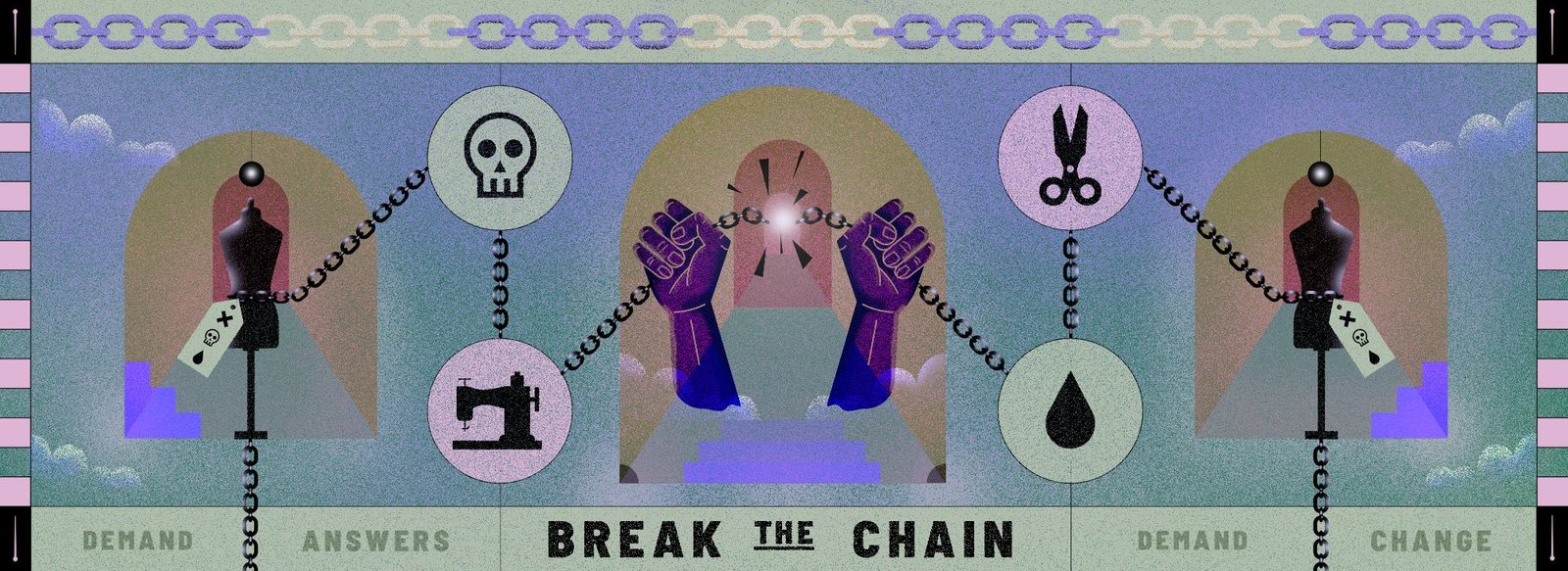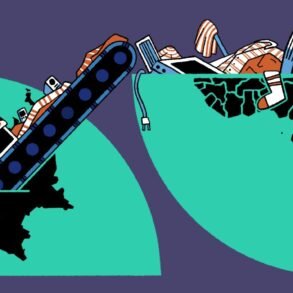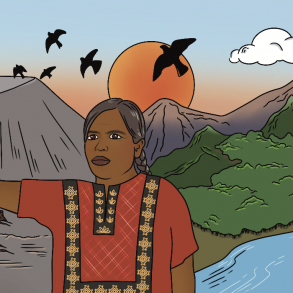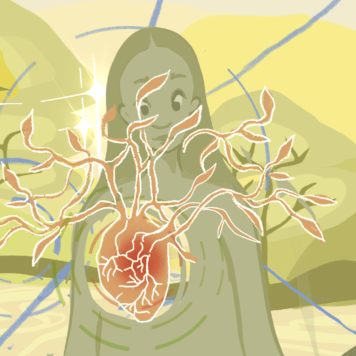We want to know about who writes the books we read and who sings the songs we listen to. However, when it comes to our clothes, we can be so entranced by their beauty and how they form part of our identity, that we seldom stop to think about the people who made them – our clothes have lived full lives before we choose to purchase and wear them.
Every high street garment travels an average of 22,000km between seven different countries before it is sold. Imagine the number of people whose skilled hands have grown fibres for fabric, then spun, woven and dyed them before the printing and stitching stage. There’s so much we don’t know, and so much that fashion brands aren’t willing to tell us.
Our clothes may be beautiful, but the truth is, fashion supply chains are ugly. Garment production is one of the most precarious, poorly paid lines of work: 93% of brands don’t pay living wages and 90% of garment workers can’t negotiate wages or working conditions. 85% of garment workers in Bangladesh are women, 80% of whom have experienced or witnessed sexual violence and harassment at work. All are likely to have experienced dust and smoke inhalation, noise pollution, lack of ventilation, eyestrain, musculoskeletal pain, stress, and exposure to lights, electric wires, and chemical adhesives.
Cotton production by the Uyghur people, a Turkic-origin Muslim people living in Xinjiang province in China, provides an intensified case study for exploitation in fashion supply chains. Being situated on the ancient Silk Road linking China to West Asia, the province historically has a relationship with trade.
Fashion Revolution, an organisation campaigning for the end of human and environmental exploitation in fashion since 2014, reports that the Chinese government is looking to revive its trade significance through the ‘Belt and Road Initiative’. The goal is to employ one million people in the textiles and garment industry in Xinjiang by 2023, up from 100,000 in 2017.
‘Employ’ is a choice word considering that human rights groups call the detention of Uyghurs in training centres as ‘the largest mass detention of an ethnic group since the Second World War.’ Beyond the textiles industry, it is believed that up to a million Uyghurs have been detained in ‘re-education camps’ in Xinjiang – a place which forcibly imposes a ban on Islamic practices and forces sterilisation of Uyghur women.
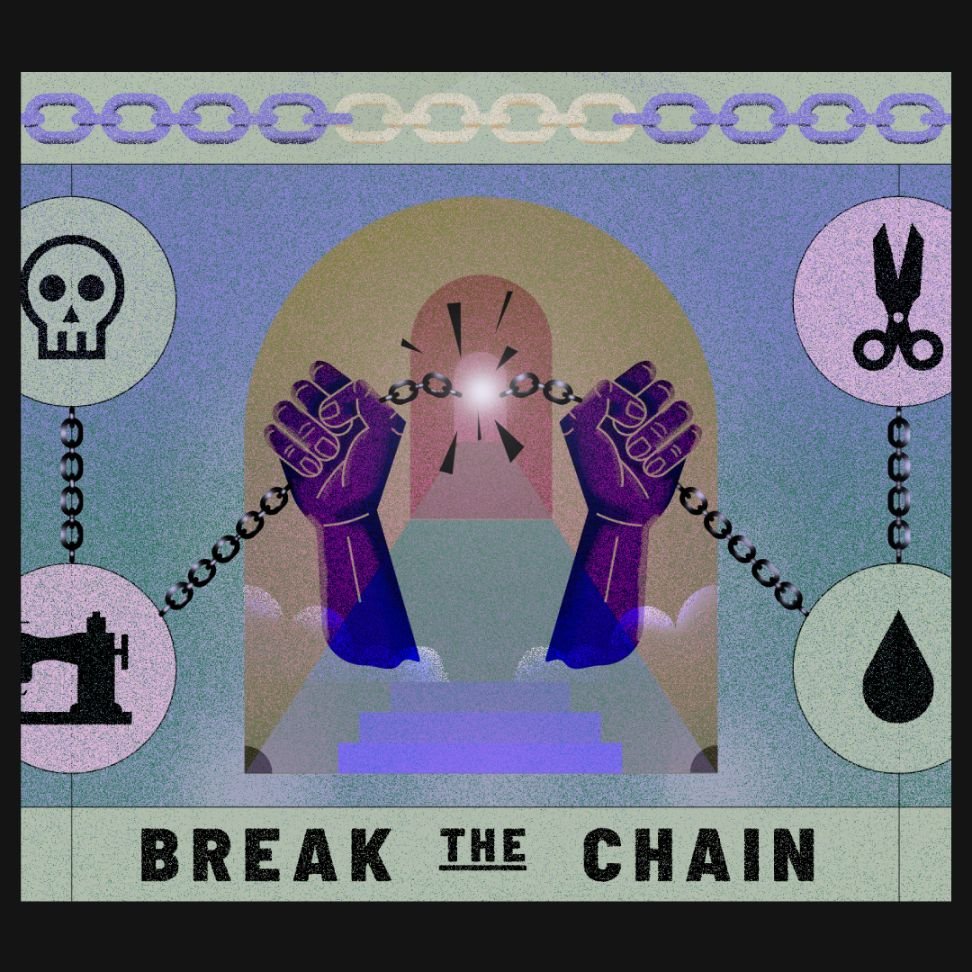
You’re probably hoping your favourite fashion brand isn’t involved in this devastating violation of human rights and decency. But unfortunately, around 20% of the world’s cotton is grown in China, of which over 84% originates in Xinjiang province. The odds aren’t great.
In July 2020, End Uyghur Forced Labour, a coalition of over 180 human rights organisations, published a list of brands sourcing their cotton from Xinjiang that includes Abercrombie & Fitch, Adidas, Calvin Klein, Fila, GAP, H&M, Lacoste, Nike, The North Face, Polo Ralph Lauren, Uniqlo, Victoria’s Secret and Zara.
If you’re no stranger to the ethical fashion conversation, this list won’t surprise you. However, Veronica Bates Kassatly, an independent analyst, has reported that until June 2020, Textile Exchange and the WWF had endorsed organic cotton from Xinjiang as ‘preferred and more sustainable’. Most consumers neither have the time nor desire to examine this further, which lets brands off the hook as they greenwash their customers.
A common type of greenwashing in fashion is when a brand’s marketing focuses on a minor environmentally friendly aspect of their business, but fails to account for the impact of the rest. For example, fast fashion brand Pretty Little Thing’s recycled clothing collection – consumers who don’t know any better might think this is great, but in reality the brand uploads hundreds of new items not made of recycled materials to its website everyday. Furthermore, this technique is used by brands to deflect from poor labour practices, like in Boohoo and Pretty Little Thing’s Leicester factories.
In addition to the End Uyghur Forced Labour campaign, efforts have been made in the US to not cooperate with Uyghur forced labour in the form of the Uyghur Forced Labor Prevention Act. In April 2020 in the UK, Global Legal Action Network and World Uyghur Congress requested the suspension of imports of cotton produced in Xinjiang. The aforementioned human rights groups are doing important work in campaigning to have the condemnation of Uyghur forced labour enshrined in law, because frankly we can’t trust brands to do the right thing.
H&M initially shoved off its complicity in Uyghur forced labour by insisting it sources the Xinjiang cotton through a supplier and therefore only has an indirect relationship with Xinjiang. Even so, why can’t H&M sever that partnership?
In an article for Eco-Age, Aditi Meyer and Remake founder Ayesha Barenblat frame fashion brands as colonial masters – their very foundation depends on exploiting labour and resources in the cheapest location possible. The system isn’t one which can be easily fixed as it was purposely made this way, built to make and sell as much cheap clothing as possible, regardless of who pays the eventual price.
Human rights groups and consumers can put pressure on governments to implement legislation to tangibly monitor and criminalise forced labour in fashion supply chains, but putting pressure on the brands themselves is an equally powerful form of activism. We’ve seen it in full force this year.
As COVID-19 hit worldwide, fashion brands cancelled £2.4 billion worth of orders from Bangladeshi garment factories without paying them – in a country of 4 million garment workers this was, obviously, detrimental. Thanks to individuals and collectives participating in Remake’s #PayUp campaign, 18 brands have agreed to pay for cancelled orders to date.
Sure, brands can often ignore our concerns, but this campaign showed that with enough of us demanding answers and change, we can have an impact. Elizabeth L Cline writes in a recent article for Atmos:
‘What would a world of social change look like that doesn’t include reading the fine print on product labels and chastising friends for shopping at the “wrong” stores? Before the neoliberal era, we can find consumer-driven social movements that wielded extraordinary amounts of political power and made lasting changes to society that still benefit us today.’
In my view, 100 people tweeting a brand about garment worker wages is more likely to bring about change than 100 people boycotting a single brand. Unless it’s done strategically, boycotting can lead to even greater uncertainty for the women who rely on work in garment factories to gain financial independence.
So what next? First, a whole lot of learning if you’re new to labour exploitation in fashion. The True Cost documentary is a fantastic place to start. Then, the Remember Who Made Them Instagram feed and podcast get deep into what it actually means to stand in solidarity with garment workers and hold brands to account – use Oh So Ethical’s email and Tweet drafts to help with the latter.
Now next time you get dressed in your favourite clothes, or consider purchasing new ones, perhaps think about the time and the skills that went into making them. Our clothes hold so many stories that we sadly aren’t told – what can you do to honour the people who made them?
Subscribe to shado's weekly newsletter
Exclusive event news, job and creative opportunities, first access to tickets and – just in case you missed them – our picks of the week, from inside shado and out.

